
Blue Cheer was an American rock band that initially performed and recorded in the late 1960s and early 1970s and was sporadically active until 2009. Based in San Francisco, Blue Cheer played in a psychedelic blues rock or acid rock style, and are also credited as being some of the earliest pioneers of heavy metal, with their cover of "Summertime Blues" sometimes cited as the first in the genre. They have also been noted as influential in the development of genres as disparate as punk rock, stoner rock, doom metal, experimental rock, and grunge.

Vincebus Eruptum is the debut album of American rock band Blue Cheer. Released on January 16, 1968, the album features a heavy-thunderous blues sound, which would later be known as heavy metal.
Lillian Roxon was a noted Australian journalist and author, best known for Lillian Roxon's Rock Encyclopedia (1969).
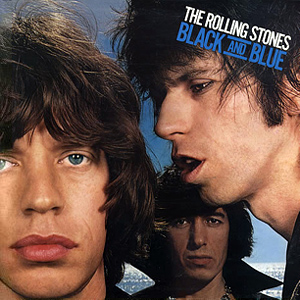
Black and Blue is the 13th British and 15th American studio album by the English rock band the Rolling Stones, released on 23 April 1976 by Rolling Stones Records.

Richard Allan Peterson known as Dickie Peterson was an American musician, best known as the bassist, lead singer and only constant member of Blue Cheer. He also recorded two solo albums: Child of the Darkness and Tramp.

The Hoople is the seventh studio album by British rock band Mott the Hoople. The album peaked in the UK Albums Chart at No. 11, whilst its highest chart rating in the US was No. 28. A remastered and expanded version was released by Sony BMG on the Columbia Legacy label in Europe in 2006. It was the only album to feature guitarist Ariel Bender, and the last album to feature vocalist Ian Hunter before his departure for a solo career.
Clear Light was an American psychedelic rock band that was formed in Los Angeles, California in 1966. The group released one studio album, Clear Light. It had moderate national success before the group disbanded.

Welcome to the Canteen is the first live album by English rock band Traffic. It was recorded live at Fairfield Halls, Croydon and the Oz Benefit Concert, London, July 1971 and released in September of that year. It was recorded during Dave Mason's third stint with the band, which lasted only six performances.
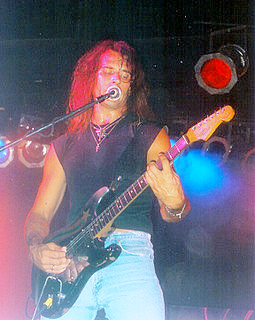
Andrew "Duck" MacDonald is an American heavy metal/hard rock guitarist, who has played in several bands, the most well-known of which being Blue Cheer.

Sneakin' Sally Through the Alley is the debut solo album by Robert Palmer, released in 1974. It was his first effort after three album releases co-fronting the band Vinegar Joe.

I've Got My Own Album to Do is the first solo album by English rock musician Ronnie Wood, released in September 1974. An all-star project recorded outside of his activities with the Faces, it reached number 27 on the UK's NME chart. The album title was thought to be a dig at Rod Stewart, who appeared to be more committed to his solo career than working with the Faces. Wood has said that the title originated from contributors such as George Harrison and Mick Jagger "nagging me to let them go home" and finish their own projects. The album was recorded at The Wick, Wood's house in Richmond, south-west London.

Flavours is the thirteenth studio album by the Canadian rock band The Guess Who. This was the first album by the group to feature Domenic Troiano on guitar.

Outsideinside is the second album by American rock band Blue Cheer. Philips Records released the album in August 1968, only seven months after their debut LP, Vincebus Eruptum.

New! Improved! is the third album by American rock group Blue Cheer. Released in March 1969 by Philips Records, it is their first without original guitarist Leigh Stephens. The album features songs recorded by two different group lineups: in addition to bassist and vocalist Dickie Peterson and drummer Paul Whaley, side one includes Bruce Stephens on guitar and Burns Kellogg on keyboards; while side two includes Randy Holden on guitar and vocals.

The Original Human Being is Blue Cheer's fifth album. It was released in 1970 and shows Blue Cheer exploring a more psychedelic and laid‑back rock and roll with horn sections on a few of the songs. This album features a very unusual, and different, song for Blue Cheer: "Babaji ", which features extensive use of sitar and synthesizer. These instruments were only used one other time in the song "I'm the Light" on the album Oh! Pleasant Hope.
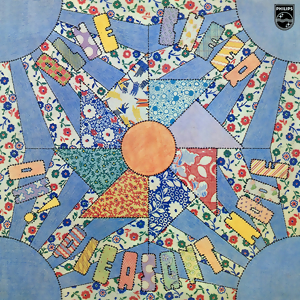
Oh! Pleasant Hope is the sixth album by American rock group Blue Cheer, and their final album until 1984's The Beast Is Back. It features less psychedelia and hard rock and includes more folk rock elements. This is an unusual Blue Cheer album in that Dickie Peterson only sings lead on three songs. Another unusual aspect is that the song "I'm the Light" features extensive use of the sitar and synthesizer, although on the previous album The Original Human Being the song "Babaji " also featured extensive use of the aforementioned instruments.

The Beast Is Back is the seventh album by a newly reformed Blue Cheer, 13 years after their previous album, Oh! Pleasant Hope (1971). It contains re-recorded versions of some of the band's most popular songs from their late-1960s heyday as well as new material. The album features founding members Dickie Peterson and Paul Whaley. Original guitarist Leigh Stephens did not participate in the reunion.
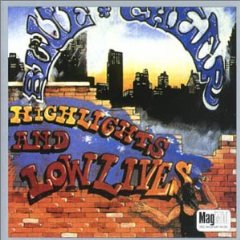
Highlights and Lowlives is the eighth studio album by American rock band Blue Cheer, released in 1990 and produced by Jack Endino. The bonus track Blues Cadillac is on some versions/releases and can be hidden on some of the CDs.
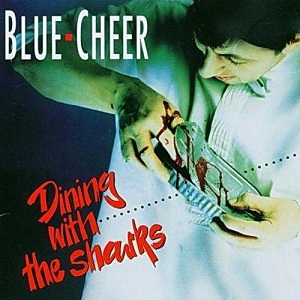
Dining With the Sharks is the ninth studio album by American rock band Blue Cheer. It features a cover of Jimi Hendrix's classic "Foxy Lady".
Kak was an American psychedelic rock band, based in San Francisco between 1967 and 1969.

















